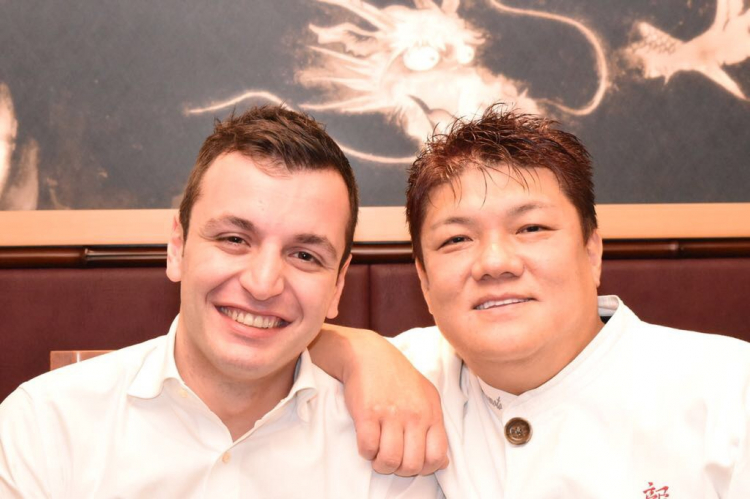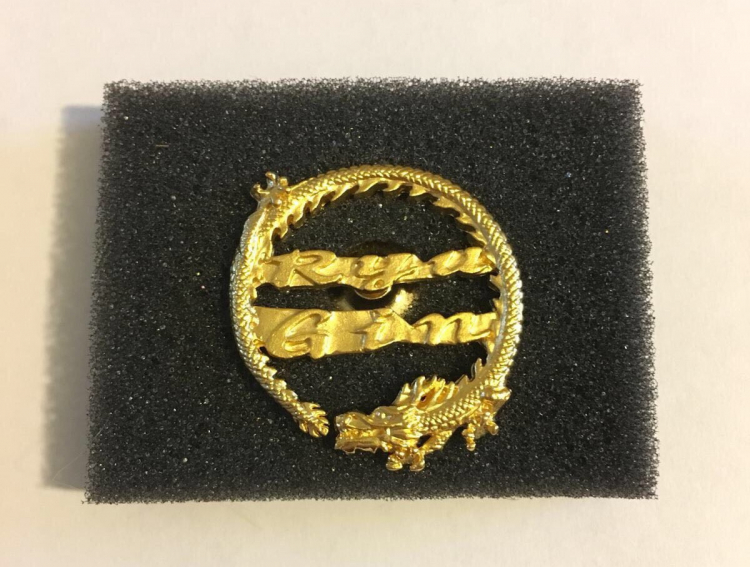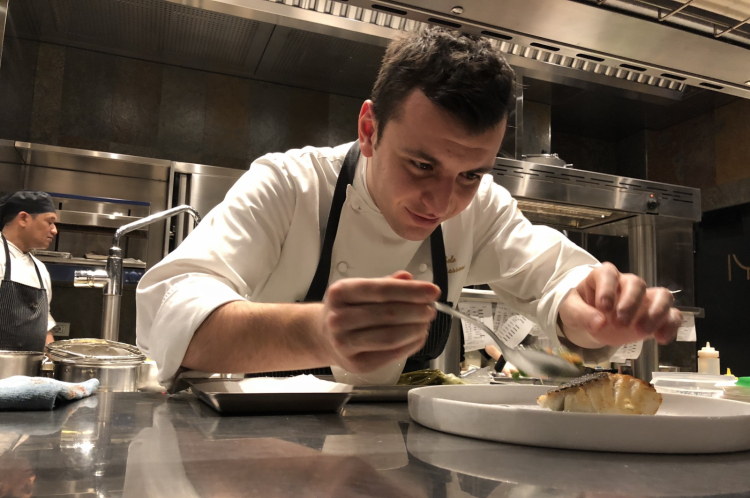I heard excellent things about Ryugin from Hiroshi Noda, a colleague at Iyo in Milan. He praised the fantastic raw materials and techniques, 100% Japanese. A restaurant ahead of its times, where I was dreaming of acquiring experience so as to get a better understanding of the mentality of that country’s cuisine.
I applied online in February. The reply arrived soon: they welcomed me with pleasure, I would not get paid but they offered food and accommodation, a luxury given how expensive the city is. I was very happy but there was a but: I asked to go in August, when Iyo is closed; they only accepted interns for three months. I went to my patron Claudio Liu and he didn’t hesitate: «If I weren’t capable of finding a substitute for three months, I wouldn’t be capable of doing my job. Go!».
I left on the 7th August, landed and settled in a flat above the restaurant, in Roppongi [in the summer of 2018 the restaurant will move to Hibiya]. I shared my experience with other interns from all around the world: Hong Kong, Israel, Canada, England.
First service, 10th August, from noon to one in the morning – the restaurant is only open in the evening. I’m one of the 3 interns in the team. At Ryugin there’s a new intern every month and a half and the predecessor must always help the new arrival. I speak good French and decent English. But they speak almost only in Japanese there. Shoyu, ichimi, uni, amaebi, unagi. I learnt a few words at Iyo and this helped.

Biassoni with Seiji Yamamoto, chef at Ryugin, born in 1970

The first days were rather hard. You can only watch how the brigade is working. After a few services, you get simple tasks. I gradually started to prepare vegetables. I cleaned
edamame, diced vegetables, prepared sprouts and garnishes, cleaned fresh wasabi.
They put you to the test: if your hand skills are not good enough, if you don’t do something perfectly, they won’t let you do the same thing again. If you do it properly, you gradually gain respect, even though it’s a lengthy process. In Italy, if you show you can make it, it’s a short step to the stoves. Not in Japan, you have to go a long way before you can test yourself with cooking …
The kitchen at Ryugin is divided into four stations plus pastry making: starters, robatayaki grill, hot courses and sashimi. They immediately assign me the latter, and then moved me to the robatayaki so as to train the following intern. It’s an honour because raw fish is the most important station for me: it’s been run for a decade by Seiji Yamamoto’s sous chef.

The medal Biassoni got at the end of the internship: «You only get it if you were really good»

Over the 3 months there I learnt a lot. Japanese chefs leave nothing to chance. It’s impressive how they always use the best technique to enhance the flavour of every food. Turbot,
ayu [freshwater fish]: every fish arrives alive from the supplier, something in Italy only happens with some crustaceans. In Japan they think fish must be alive until you cook it. This is why they use
ikejime brain shock with fish: they enter the brain with a needle, which prevents the carcass from getting hard. For the same reason, they never keep fish in the freezer at temperatures below zero, nor they chill it: «If you do so, the meat dies», they tell me, «Sashimi instead must be crunchy when you chew it».
I’m struck by their focus: beside them, anything might happen and they almost don’t notice. They never make a mistake. They just think of food, even when they are not working. And when working, they never waste anything. When it happens, rarely, they never use food waste the following day.

Michele Biassoni, 30 yo, at Iyo's pass

Among the things I’ll always remember vividly, the traditional dishes the chef would make for our staff meal, from 3 to 5 pm. For instance, gydon beef, with wagyu cuttings stewed in a pan with sake and seasoned with soy sauce, incredibly delicious. From the beginning to the end of the service,
Yamamoto shows his authority through silence. Like him, nobody must say a word. The reward is learning. At Ryugin you learn something every day.
Content curated by Gabriele Zanatta.
Translated by
Slawka G. Scarso